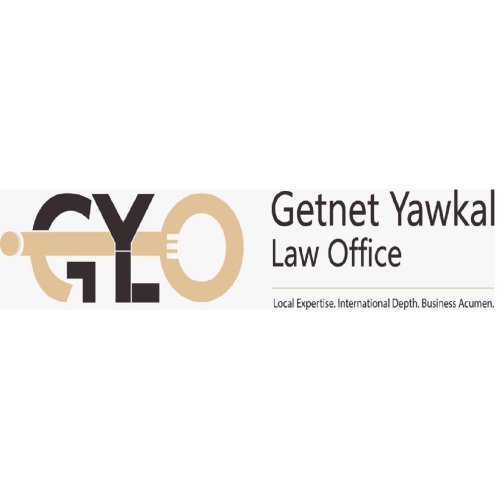Best Private Equity Lawyers in Ethiopia
Share your needs with us, get contacted by law firms.
Free. Takes 2 min.
Or refine your search by selecting a city:
List of the best lawyers in Ethiopia
About Private Equity Law in Ethiopia
Private equity involves investing capital in private companies that are not listed on public stock exchanges. In Ethiopia, private equity is an emerging area within the broader financial and investment landscape. It focuses on funding businesses for growth, restructuring, or ownership transfers. As Ethiopia works to liberalize parts of its economy, more international and domestic investors are showing interest in private equity opportunities. However, this sector is still developing, and navigating the legal requirements often demands specialized knowledge.
Why You May Need a Lawyer
Engaging in private equity transactions in Ethiopia can be complex due to evolving regulations and unique business practices. You may require a lawyer if you are:
- Establishing or structuring a private equity fund
- Negotiating investment agreements between investors and local businesses
- Conducting due diligence on target companies
- Ensuring compliance with Ethiopian investment and company laws
- Dealing with cross-border fund transfers, especially if you are a foreign investor
- Handling disputes related to investments or partnership agreements
- Understanding tax implications for both investors and investee companies
- Managing exits from investments, including sales or public offerings
A lawyer can help minimize risks, protect your interests, and ensure that your transactions are structured legally and efficiently.
Local Laws Overview
Private equity activity in Ethiopia is primarily governed by:
- The Commercial Code of Ethiopia, which outlines the foundation for company formation, management, and dissolution
- The Investment Proclamation and its amendments, which regulate domestic and foreign investments, capital registration, and investment incentives
- Tax Proclamations, which determine corporate and investment-related tax obligations
- Foreign Exchange Control Proclamations, which regulate currency transactions and capital repatriation
- Sector-specific proclamations, for industries such as banking, insurance, and telecommunications, that may impact private equity deals
Private equity investors must comply with registration, licensing, and reporting requirements set by the Ethiopian Investment Commission and other regulatory agencies. Ethiopian law restricts certain sectors to domestic ownership or imposes joint venture requirements for foreigners. Due diligence is essential, as government approval may be needed for share transfers, and the legal environment can change as reforms are enacted.
Frequently Asked Questions
What is private equity in the Ethiopian context?
Private equity in Ethiopia refers to investment in private companies, either by purchasing shares or providing capital, with the aim of generating financial returns or fostering company growth. It is different from public investments, as it deals mainly with unlisted entities.
Can foreigners participate in private equity investments in Ethiopia?
Yes, foreigners are allowed to invest in many sectors in Ethiopia, subject to the Investment Proclamation and sector-specific regulations. Some industries remain closed or require joint ventures with Ethiopian nationals.
Are there any restrictions on foreign capital repatriation?
Foreign investors are generally allowed to repatriate capital and profits, but they must register their investment and comply with foreign exchange regulations. Documentation and approval from the National Bank of Ethiopia may be necessary.
What legal structures are available for private equity transactions?
Most private equity deals in Ethiopia use share companies or limited liability companies as the legal structure. The choice depends on factors such as investor preference, compliance needs, and tax considerations.
Is government approval required for private equity investments?
In many cases, particularly for foreign investments, government approval and registration with the Ethiopian Investment Commission are required. Certain sectors may need additional licenses or permits.
How is due diligence conducted in Ethiopia?
Due diligence in Ethiopia involves a thorough review of a company's legal standing, financial health, tax compliance, and regulatory permits. Local counsel often assist in verifying company documents and assessing risks.
What are the tax implications for private equity investors?
Private equity investors are subject to corporate income tax, withholding tax on dividends, and capital gains tax as outlined in Ethiopian tax laws. Investment incentives may be available in priority sectors or regions.
What is the process for exiting a private equity investment?
Exit options include selling shares to other investors, buybacks by the company, or public offerings where permitted. Each exit method involves legal formalities, and in some cases, government notification or approval.
How can disputes in private equity transactions be resolved?
Disputes are commonly settled through negotiation or mediation, but may proceed to arbitration or litigation in Ethiopian courts. It is advisable to include clear dispute resolution clauses in investment agreements.
What risks should private equity investors be aware of?
Risks include legal and regulatory changes, compliance delays, foreign exchange restrictions, political risks, and challenges in information accuracy. Legal advice can help mitigate many of these risks.
Additional Resources
If you require more information or support regarding private equity in Ethiopia, you can consult the following bodies and organizations:
- Ethiopian Investment Commission - oversees investment regulation and provides registration services
- Ministry of Trade and Regional Integration - responsible for company registration and trade licenses
- National Bank of Ethiopia - regulates foreign exchange and capital movement
- Ethiopian Chamber of Commerce and Sectoral Associations - provides networking and legal information for businesses
- Private law firms specializing in commercial and investment law
Next Steps
If you are considering a private equity investment or facing legal challenges in this area, take these steps:
- Define your investment goals and identify sector-specific regulations
- Engage a qualified Ethiopian lawyer with experience in private equity transactions
- Gather all necessary documentation, including company records and financial statements
- Assess risks and ensure full compliance with Ethiopian laws and regulations
- Negotiate terms and include robust legal protections in your agreements
- Register your investment and follow up with the relevant governmental bodies
Legal advice can be invaluable in safeguarding your interests and ensuring smooth, successful transactions in Ethiopia's evolving private equity sector.
Lawzana helps you find the best lawyers and law firms in Ethiopia through a curated and pre-screened list of qualified legal professionals. Our platform offers rankings and detailed profiles of attorneys and law firms, allowing you to compare based on practice areas, including Private Equity, experience, and client feedback.
Each profile includes a description of the firm's areas of practice, client reviews, team members and partners, year of establishment, spoken languages, office locations, contact information, social media presence, and any published articles or resources. Most firms on our platform speak English and are experienced in both local and international legal matters.
Get a quote from top-rated law firms in Ethiopia — quickly, securely, and without unnecessary hassle.
Disclaimer:
The information provided on this page is for general informational purposes only and does not constitute legal advice. While we strive to ensure the accuracy and relevance of the content, legal information may change over time, and interpretations of the law can vary. You should always consult with a qualified legal professional for advice specific to your situation.
We disclaim all liability for actions taken or not taken based on the content of this page. If you believe any information is incorrect or outdated, please contact us, and we will review and update it where appropriate.
Browse private equity law firms by city in Ethiopia
Refine your search by selecting a city.

















